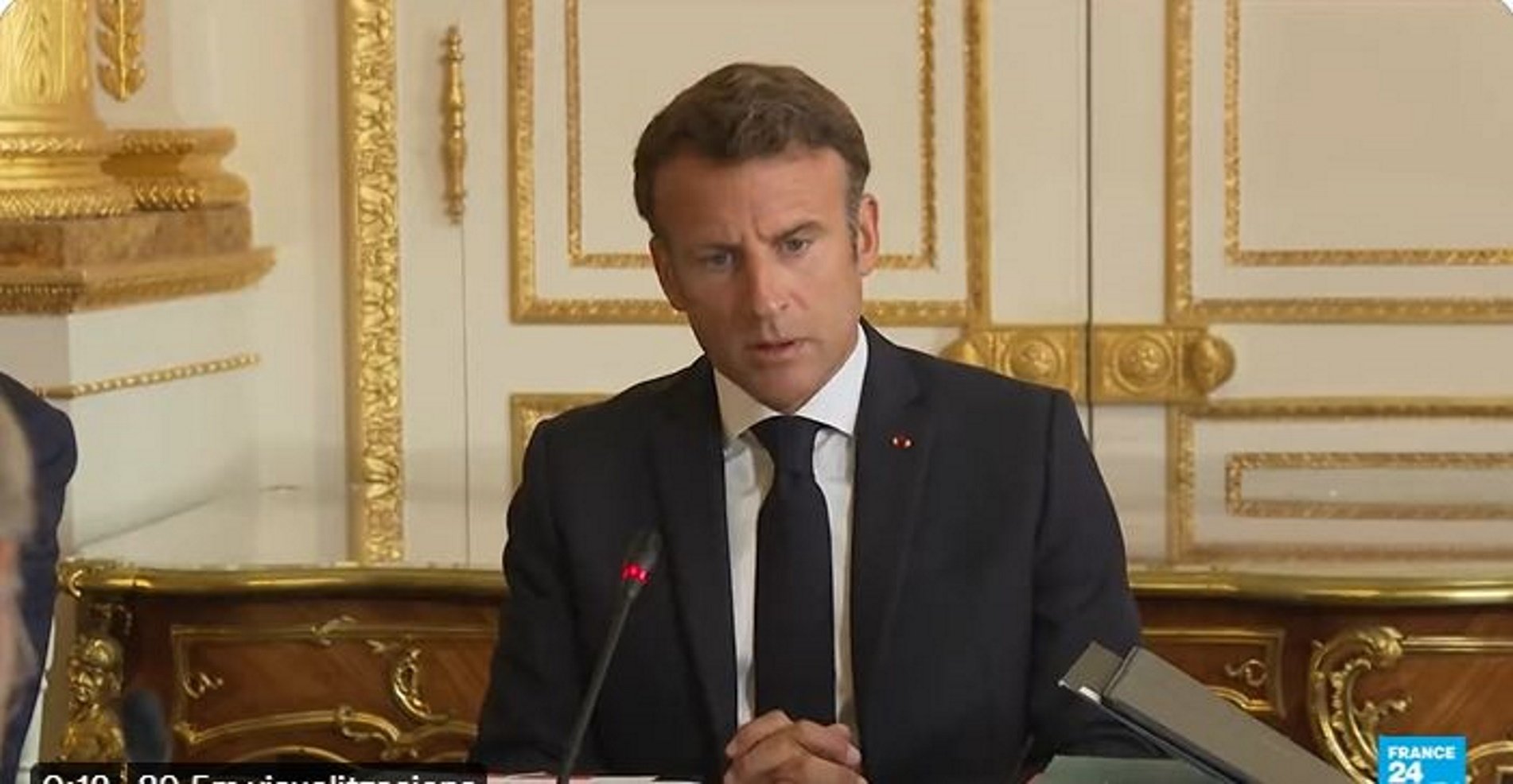The French president, Emmanuel Macron, has delivered the gravest message heard from a European head of state since the Second World War, warning that "the end of abundance" is arriving, as well as the end of "shared assumptions" on things as basic as democratic rights. Speaking in a televised cabinet speech this Wednesday, Macron used these terms to refer to the problems to be faced once the summer is over, and reflected that what is being seen is the arrival of "a series of crises, each more serious than the last".
Unlike the approach taken in other countries up till now, where the current crisis is only being discussed tactically based on the immediate news of the day, Macron decided to make a general summing-up coinciding with France's rentrée after the summer recess and, before the media, he sketched out an extremely difficult predicament. He took advantage of the moment to ask the French people for "unity", and not to fall for conspiracy theories or demagoguery. "Our compatriots may react with great uneasiness", he acknowledged, alluding to the tendency of French politics to easily take conflicts to the streets. And that is why he told his ministers that, from now on, they should speak "very clearly" to the population, but always without falling into "catastrophism".
🇫🇷 Emmanuel #Macron warned of sacrifices ahead and foreshadowed the "end of abundance" at his first cabinet meeting following the summer break.
— FRANCE 24 English (@France24_en) August 24, 2022
"What we are living through is a time of great upheaval." ⤵️ pic.twitter.com/skgo6qiaIg
"We see a series of crises, each one more serious than the last, and it could be seen that we are destined to be permanently managing crises and emergencies. For my part I believe that what we are going through is a great upheaval, a radical change. In the first place, because we are experiencing - not just this summer, but for the last few years - what could be seen as the end of abundance, of endless liquidity, and we will have to face the consequences of that in the public finances. The world is reorganizing and we are seeing the end of perpetually available products and technologies, we saw it during Covid. The interruption of value chains, scarcity of one material technology or another is reappearing, the end of an abundance of land or raw materials, and water as well, on this we have to draw all the consequences " said the French president, mentioning the French conference on water held this year and its conclusions on a restructuring that "it is up to us to implement".
Then, continuing: "It is also the end of shared assumptions. If we look at France, Europe and the course the world is taking, if people thought that democracy and human rights were the theological pillar of the international order, recent years have destroyed some of the evidence for this. We are witnessing the rise of illiberal regimes, the consolidation and reinforcement of authoritarian regimes." "And it is also the end - for those who had it - of a kind of carefree attitude. It is six months since war returned to Europe," he said. "In the same way, the climate crisis with all its consequences is perceived, and the new risks are also appearing these days, such as cyber risks."
"This situation that I am describing, the end of abundance, the end of a carefree approach, the end of our assumptions shows that we are going through a profound shift, to which our compatriots may react with great uneasiness, and therefore we have some duties: the first is to call things by their name, very clearly and without catastrophism. To state the fact that our regime of liberty, which we are accustomed to, has a cost and when we have to defend it that may mean sacrifices."
Macron has admitted that in the context of rampant inflation, the war in Ukraine and the climate crisis, "it is easy to promise anything and even say anything". But he has asked "not to give in to these temptations", and not to fall into "demagoguery". Given this, he made a call to defend democracy and "real equality of opportunity."
The French president made the statements, before his cabinet and before the TV cameras, after speaking with the Russian president, Vladimir Putin, last week, in a long telephone conversation, and shortly before embarking on a three day trip to Algeria to discuss the gas issue.

